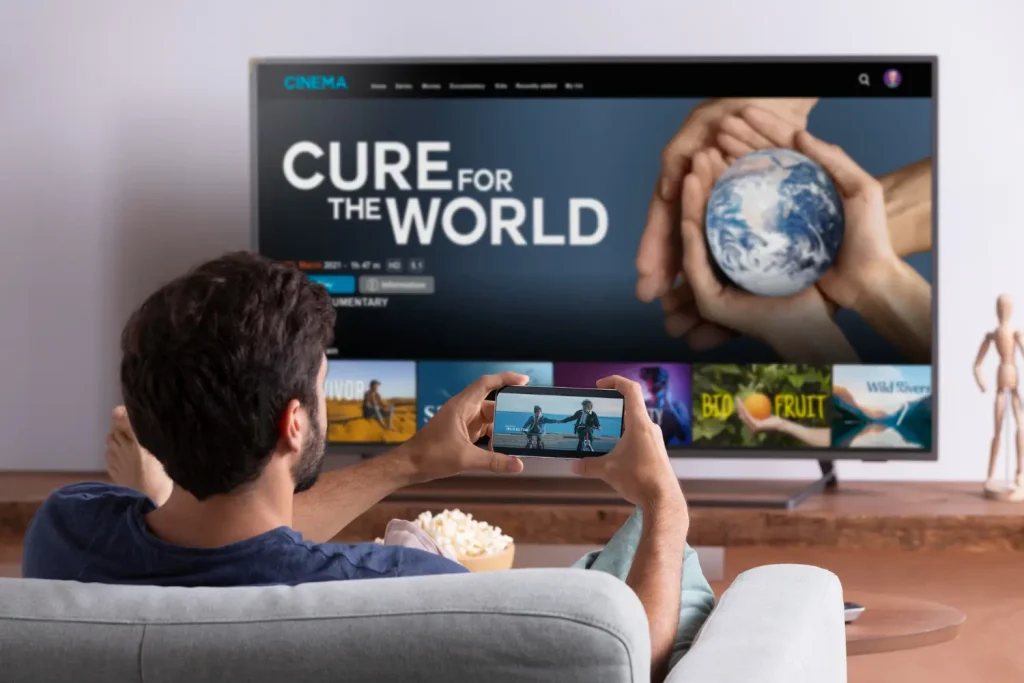How Digital Marketing is Transforming the Entertainment and Media Industry

In today’s fast-paced digital world, the entertainment and media industry is undergoing a significant transformation. Digital marketing, with its vast array of tools and strategies, is at the forefront of this change, enabling media companies, artists, and content creators to reach broader audiences, engage with fans, and optimize their operations. This article delves into the ways digital marketing is revolutionizing the entertainment and media landscape, providing real-world examples to illustrate its impact.

Expanding Audience Reach
One of the most profound impacts of digital marketing on the entertainment and media industry is the ability to reach a global audience. Traditional marketing methods, such as television ads and billboards, are limited by geography. In contrast, digital marketing tools like social media, search engine optimization (SEO), and email marketing transcend these barriers.
Example: Netflix, a global streaming giant, leverages digital marketing to promote its content worldwide. Through targeted social media campaigns, personalized email newsletters, and search engine ads, Netflix can reach potential subscribers in every corner of the globe. This extensive reach has helped Netflix grow its subscriber base to over 200 million worldwide.

Enhanced Engagement with Audiences
Digital marketing facilitates a more interactive and engaging experience for audiences. Social media platforms, in particular, provide a space where fans can interact with their favorite artists, shows, and movies in real-time. This engagement not only fosters a loyal fan base but also provides valuable feedback to creators.
Example: Singer Taylor Swift interacts directly with her fans on social media sites like Twitter and Instagram. By sharing behind-the-scenes content, engaging in conversations, and responding to fan messages, Swift maintains a strong connection with her audience. This direct engagement has played a crucial role in her sustained popularity and the success of her album releases.

Data-Driven Decision Making
The digital marketing landscape is rich with data. Analytics tools track every click, view, and interaction, providing media companies with valuable insights into audience preferences and behaviors. This data-driven approach allows for more informed decision-making, from content creation to marketing strategies.
As an example, the top music streaming service, Spotify, employs data analytics to tailor customer experiences.. By analyzing listening habits, Spotify can recommend songs and create personalized playlists for its users. This personalized approach keeps users engaged and helps Spotify retain its subscriber base.

Cost-Effective Marketing Strategies
Compared to traditional marketing strategies, digital marketing is more affordable. With options like pay-per-click (PPC) advertising, social media ads, and influencer partnerships, media companies can achieve significant reach and engagement without the hefty price tag of traditional media.
Example: Independent filmmakers often rely on crowdfunding platforms like Kickstarter and Indiegogo to finance their projects. By using social media and email marketing to promote their campaigns, these filmmakers can reach potential backers worldwide. This cost-effective strategy has helped many independent films get off the ground and reach audiences they might not have otherwise.

Innovative Content Distribution
The distribution of content has also been completely transformed by digital marketing. Streaming services, online platforms, and social media channels allow for instant content delivery, bypassing traditional distribution channels like theaters and television networks.
Example: YouTube has become a primary platform for content creators to distribute their work. From independent web series to major studio productions, YouTube provides a space for creators to reach audiences directly. YouTube’s ad revenue-sharing model also allows creators to monetize their content, providing an additional revenue stream.

Building Brand Partnerships and Collaborations
Brands and media organizations can collaborate and form partnerships thanks to digital marketing. Influencer marketing, brand collaborations, and sponsored content are just a few ways that media companies can partner with brands to enhance their reach and generate revenue.
Example: The Marvel Cinematic Universe (MCU) has successfully leveraged brand partnerships to promote its films. Collaborations with brands like Audi, Coca-Cola, and Samsung have not only provided additional marketing support but also integrated these brands into the films themselves, creating a symbiotic relationship that benefits both parties.

Real-Time Marketing and Adaptability
Digital marketing’s real-time nature enables campaigns to be quickly modified and adjusted. Media companies can respond to trends, audience feedback, and performance metrics in real-time, ensuring their marketing strategies remain relevant and effective.
Example: During the release of “Avengers: Endgame,” Marvel Studios closely monitored social media reactions and engagement. By quickly adapting their marketing strategies based on audience feedback and trends, they were able to maximize the film’s exposure and box office success.

Creating a Multichannel Presence
Digital marketing enables media companies to maintain a presence across multiple channels. From social media platforms to streaming services, having a multichannel strategy ensures that content reaches audiences wherever they are.
Example: Disney employs a comprehensive multichannel marketing strategy to promote its films and theme parks. By utilizing social media, email marketing, mobile apps, and streaming platforms like Disney+, Disney ensures its content and promotions reach a wide and diverse audience.

The Importance of a Digital Marketing Expert in Kochi
To leverage these strategies effectively, many media companies and content creators turn to professionals with expertise in digital marketing. A digital marketing expert in Kochi, for example, can provide invaluable insights and strategies tailored to the unique needs of media entities in the region.
Example: A digital marketing expert in Kochi might work with local film production houses to optimize their online presence, run targeted social media campaigns, and use SEO to increase visibility. By understanding both the local market dynamics and global digital marketing trends, these experts can help local media companies compete on a larger scale.

Conclusion
Digital marketing is undeniably transforming the entertainment and media industry. By expanding audience reach, enhancing engagement, leveraging data for decision-making, offering cost-effective strategies, innovating content distribution, facilitating brand partnerships, enabling real-time marketing, and creating a multichannel presence, digital marketing provides media companies with the tools they need to thrive in the digital age. As technology continues to evolve, the role of digital marketing in the entertainment and media industry will only become more integral, driving growth and innovation in this dynamic sector.
A digital marketing expert in Kochi, leveraging their knowledge and experience, can play a pivotal role in this transformation, helping media entities harness the power of digital marketing to achieve their goals and reach new heights.